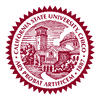Physics 204A Student Learning Resources
Below are many resources that you should explore. Your performance in the course will improve if you can find at least one of these that matches your style of learning. Many of the ones listed here are free or very low cost.Do not waste your money on Chegg or Cramster. These services will give you the answers to the homework problems, but they are not very good at helping you learn to solve problems. Therefore, they will not help you score better on the exams. Also, their solutions are not compatible with my expectations for your homework write-ups. So, they won't help you homework grade much either.
- Piazza (wiki-style discussion board)
- Piazza is designed for class discussion and collaboration. I encourage you to post your questions on Piazza - even homework problems. You can work collaboratively to solve the problems in this space. There is even a very nice equation writer. Also, you should post your comments or solutions to help others in the class. I will sometimes comment on posts to help keep you on track. Give it a try. Sign up here.
- Khan Academy (example problems)
- The Khan Academy is an organization with the goal of changing education for the better by providing a free world-class education for anyone anywhere. It is organized in roughly ten minute episodes on single topics. Many of these will used as the required pre-lecture preparation.
- The Mechanical Universe and Beyond
- The Mechanical Universe and Beyond video instructional series designed to demystify physics by showing students what it looks like. Field trips to hot-air balloon events, symphony concerts, bicycle shops, and other locales make complex concepts more accessible. Inventive computer graphics illustrate abstract concepts such as time, force, and capacitance, while historical reenactments of the studies of Newton, Leibniz, Maxwell, and others trace the evolution of theories. The Mechanical Universe helps meet different students' needs, from the basic requirements of liberal arts students to the rigorous demands of science and engineering majors. This series is also valuable for teacher professional development. Produced by the California Institute of Technology and Intelecom. 1985.
- The Feynman Lectures on Physics
- Richard Feynman received the Nobel Prize in Physics in 1965 for his contributions to the development of quantum electrodynamics. During his career at the California Institute of Technology, he was once asked to teach introductory mechanics. This free textbook is a summary of his lectures. They focus on deep conceptual development of fundamental physics principles.
- Halliday, Resnick, and Walker's Fundamentals of Physics, 9th Edition.
- The faculty of the Department of Physics have agreed that this is the best textbook for this course. It is the recommended text for this course. It is the required text for all other sections of PHYS 204A and for all sections of PHYS 204B and PHYS 204C. So, it could be a good idea to get a copy since you'll use it in the future anyway.
- Radical Physics
- Radical Physics is a video series. Radical means root-like: deep, nourishing, and supportive. Physics is the study of matter and energy, space and time, stability and change; it supports all of science just as a root system supports a mighty tree. Physics is the science that goes deep and whose influence is felt just about everywhere. Radical Physics goes deep, too. As the months go by, it will grow and spread, helping to ground a beautiful and powerful understanding of the world.
- PhET (simulations)
- Fun, interactive, research-based simulations of physical phenomena from the PhETŞ project at the University of Colorado. This is useful for those that learn better by doing rather than reading or watching.
- Wikipedia
- Wikipedia is often quite good for science related topics. Scientifically oriented people seem to moderate the content pretty well.
- Any university physics textbook
- The content of this course doesn't change rapidly. Therefore, any book you find can be useful - even one for fifty cents at a garage sale. Just be sure it is a calculus based text. They are usually title, "University Physics" or "Physics for Scientists and Engineers."
- College Physics (free online textbook)
- This introductory, algebra-based, two-semester college physics book is grounded with real-world examples, illustrations, and explanations to help students grasp key, fundamental physics concepts. This online, fully editable and customizable title includes learning objectives, concept questions, links to labs and simulations, and ample practice opportunities to solve traditional physics application problems. Note that it uses no calculus, so it may not be helpful for the more sophisticated mathematical topics of the course.
- HippoCampus (multimedia)
- HippoCampus is a project of the Monterey Institute for Technology and Education (MITE). The goal of HippoCampus is to provide high-quality, multimedia content on general education subjects to high school and college students free of charge. On the welcome page click on Physics. PHYS 204A is mostly aligned with Introductory Physics. Click there, then on the topic you would like to learn.
 Dr. David Kagan's Physics Pages
Dr. David Kagan's Physics Pages